Dental bridges offer a reliable solution for replacing missing teeth, restoring both function and aesthetics to the smile. In Turkey, dental bridges are a popular choice for patients seeking quality dental care at affordable prices. This article explores the procedure, types, cost, and patient reviews of dental bridges in Turkey, providing valuable insights for those considering this treatment option.
Dental Bridges in Turkey

- Prices start 150 euros
- vary depending on the type of implant used

- one stage:
- 7 days
Before and After Dental Bridges in Turkey
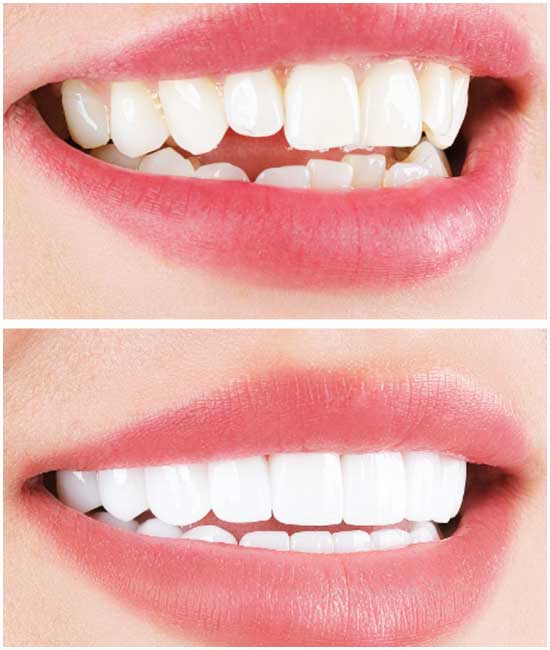
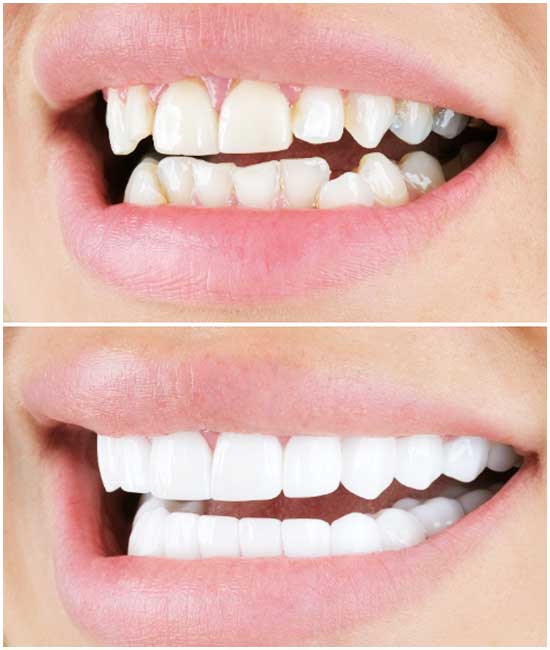
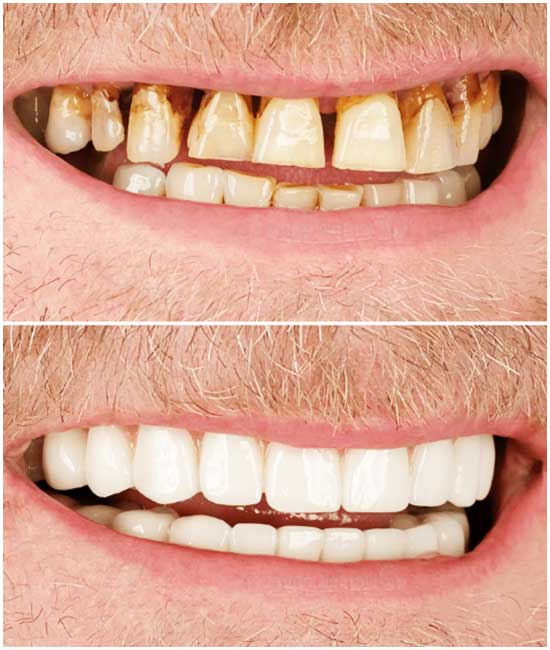
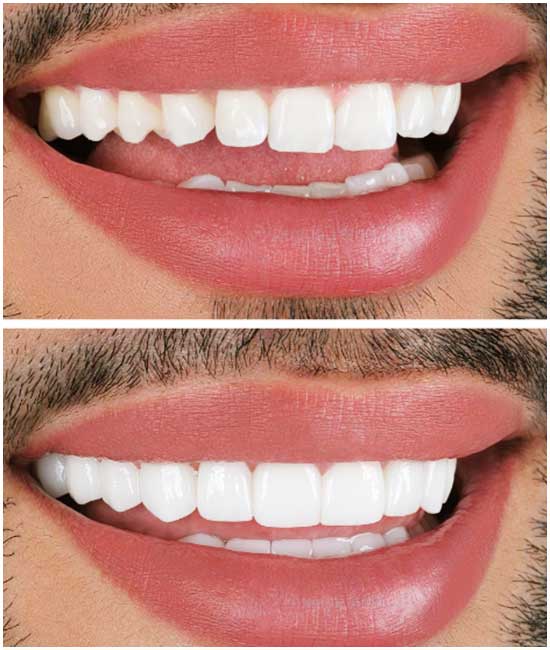
Contraindications for Using Dental Bridges
While dental bridges are a common and effective treatment for replacing missing teeth, there are certain situations where they may not be suitable. Contraindications for using dental bridges include:
- Poor Oral Health: Patients with untreated gum disease or extensive tooth decay may not be suitable candidates for dental bridges until their oral health is restored.
- Insufficient Tooth Structure: If the adjacent teeth to support the dental bridge lack sufficient structure or are compromised, it may not be possible to securely anchor the bridge in place.
- Periodontal Disease: Advanced periodontal disease can weaken the supporting structures of the teeth, making them unable to support a dental bridge effectively.
- Active Tooth Decay: Teeth adjacent to the gap where the bridge will be placed must be free from active decay to ensure the long-term success of the bridge.
- Bruxism or Teeth Grinding: Patients who habitually grind or clench their teeth may place excessive stress on the dental bridge, leading to premature wear or failure.
- Severe Misalignment: Significant misalignment or malocclusion may affect the fit and stability of a dental bridge, requiring orthodontic treatment before bridge placement.
- Uncontrolled Systemic Diseases: Certain systemic conditions such as uncontrolled diabetes or autoimmune disorders may affect the healing process and overall success of dental bridge treatment.
- Inadequate Bone Density: Sufficient bone density and volume are necessary to support the dental implants used to anchor implant-supported bridges. In cases of inadequate bone, bone grafting may be required before bridge placement.
It is essential for patients to undergo a thorough evaluation by a qualified dentist or prosthodontist to determine their suitability for dental bridge treatment and to address any potential contraindications before proceeding with the procedure.
Stages of the Installation of Dental Bridges
- Initial Consultation: The process begins with an initial consultation with a dentist or prosthodontist. During this appointment, the dentist will assess the patient’s oral health, discuss treatment options, and determine the suitability of dental bridges based on the patient’s needs and goals.
- Treatment Planning: Once the decision is made to proceed with dental bridges, a comprehensive treatment plan is developed. This plan includes considerations such as the number of missing teeth, the condition of the adjacent teeth, and the desired aesthetic outcome.
- Tooth Preparation: Before the bridge can be placed, the teeth adjacent to the gap (abutment teeth) are prepared. This involves removing a small amount of enamel from these teeth to accommodate the dental crowns that will support the bridge.
- Impressions: After tooth preparation, impressions (molds) of the prepared teeth and surrounding oral structures are taken. These impressions are used to fabricate the dental bridge and ensure a precise fit.
- Temporary Bridge Placement: While the permanent bridge is being fabricated in a dental laboratory, a temporary bridge may be placed to protect the prepared teeth and maintain proper alignment of the bite.
- Bridge Fabrication: In the dental laboratory, skilled technicians use the impressions to fabricate the dental bridge. The bridge is custom-made to match the shape, size, and color of the patient’s natural teeth for a seamless and natural-looking result.
- Bridge Fitting: Once the permanent bridge is ready, the patient returns to the dentist for the fitting appointment. The dentist checks the fit and aesthetics of the bridge and makes any necessary adjustments to ensure optimal comfort and function.
- Bridge Cementation: Once the fit is confirmed, the dental bridge is permanently cemented onto the prepared abutment teeth using dental adhesive or cement. The cementation process ensures a secure and durable bond between the bridge and the natural teeth.
- Final Adjustments: After cementation, the dentist may make final adjustments to the bridge to ensure proper bite alignment and comfort. Any excess cement is removed, and the bite is checked to ensure proper occlusion.
- Post-Treatment Care: Patients are provided with instructions on how to care for their new dental bridge, including proper oral hygiene practices and dietary recommendations. Regular dental check-ups are recommended to monitor the health and integrity of the bridge and surrounding oral tissues.
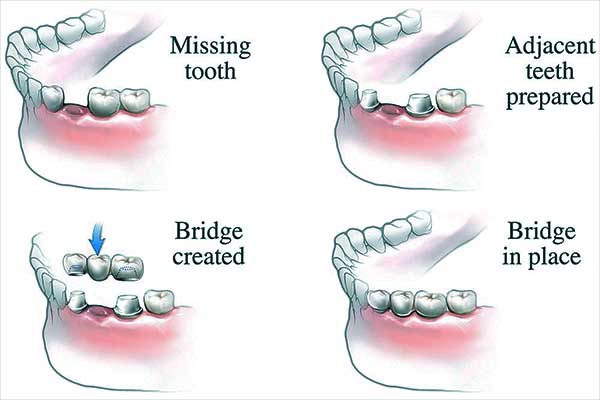
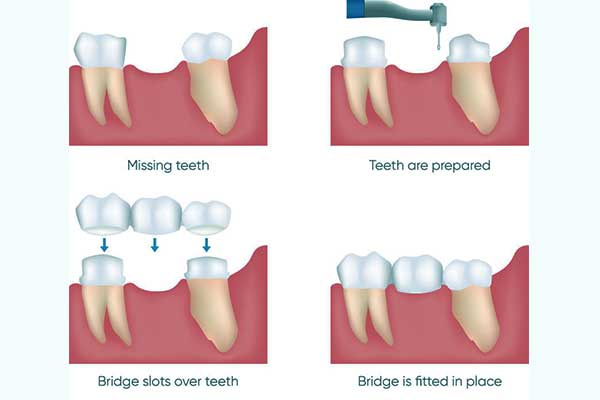
types of Dental Bridges in Turkey
In Turkey, there are several types of dental bridges available to address various dental needs. These include:
- Traditional or Conventional Bridges: These bridges consist of one or more pontic teeth (artificial teeth) anchored to adjacent natural teeth, which serve as abutments. The pontic teeth are typically made of porcelain fused to metal or ceramic material.
- Cantilever Bridges: Cantilever bridges are similar to traditional bridges but are anchored to only one adjacent tooth rather than two. They are suitable when there is only one natural tooth next to the gap to support the bridge.
- Maryland Bonded Bridges: Also known as resin-bonded bridges or Maryland bridges, these consist of a metal or porcelain framework bonded to the back of adjacent teeth with resin cement. Maryland bridges are often used to replace front teeth and require minimal alteration of adjacent teeth.
- Implant-Supported Bridges: These bridges are supported by dental implants rather than natural teeth. Dental implants are surgically placed into the jawbone to provide stable support for the bridge. Implant-supported bridges are ideal for replacing multiple missing teeth without relying on adjacent teeth for support.
Each type of dental bridge has its advantages and considerations, and the most suitable option depends on factors such as the patient’s oral health, the location of the missing teeth, and their budget.
Receive a complimentary consultation and a customized dental implants treatment plan tailored to your specific needs!
What is better: dental implants or bridgework?
The choice between dental implants and bridgework depends on various factors, including the patient’s oral health, the location and number of missing teeth, and personal preferences. Here are some considerations for each option:
- Dental Implants:
- Stability: Dental implants offer excellent stability and function similarly to natural teeth. They are surgically implanted into the jawbone, providing a strong foundation for replacement teeth.
- Preservation of adjacent teeth: Dental implants do not rely on adjacent teeth for support, which helps preserve the health and integrity of neighboring teeth.
- Bone preservation: Implants stimulate the jawbone, preventing bone loss and preserving facial structure.
- Longevity: With proper care, dental implants can last a lifetime, making them a durable and long-term solution.
- Aesthetics: Implants look and feel natural, blending seamlessly with the remaining teeth.
- Bridgework:
- Non-surgical option: Dental bridges do not require surgery like implants do, which may be preferable for some patients.
- Faster treatment: Bridgework can typically be completed more quickly than implant placement, allowing for a faster restoration of function and aesthetics.
- Cost: In some cases, dental bridges may be more cost-effective than implants, especially for replacing multiple adjacent teeth.
- Restoration of function: Bridges can restore chewing function and improve speech by replacing missing teeth.
- Aesthetic considerations: While bridges can provide satisfactory aesthetics, they may not look as natural as dental implants, especially if the gums recede over time.
Ultimately, the best option for each patient depends on their individual circumstances, including oral health, treatment goals, budget, and preferences. It is essential to consult with a qualified dentist or prosthodontist to determine the most suitable treatment plan.
Cost of the installation of dental bridges in turkey
The cost of installing dental bridges in Turkey can vary depending on several factors, including the type of bridge, the number of missing teeth to be replaced, the materials used, and the dental clinic’s location and reputation. On average, the cost of installing dental bridges in Turkey ranges from £300 to £800 per tooth. This cost typically includes the initial consultation, the bridge fabrication, the dental laboratory fees, and the placement procedure.
It’s important to note that the cost may also vary based on the complexity of the case and any additional treatments or procedures required, such as tooth extractions or bone grafting. Additionally, patients should consider any travel expenses, accommodation, and other associated costs when planning for dental treatment abroad.
Overall, dental bridges in Turkey offer a cost-effective option for patients seeking quality dental care at competitive prices. However, it’s essential to research and choose a reputable dental clinic with experienced professionals to ensure optimal results and patient satisfaction.
dental bridges in turkey Reviews – Patient Experience
Patient experiences with dental bridges in Turkey have been largely positive, with many individuals reporting satisfaction with the results and the overall treatment process. Patients appreciate the affordability of dental bridges in Turkey compared to other countries, as well as the high quality of care provided by skilled dental professionals.
Many patients praise the expertise and professionalism of the dentists and staff at Turkish dental clinics, noting their attention to detail and commitment to patient comfort. Patients also highlight the modern facilities and advanced technology used in the fabrication and placement of dental bridges, which contribute to excellent outcomes.
Furthermore, patients often express satisfaction with the aesthetic appearance and functionality of their dental bridges, noting improvements in chewing ability, speech clarity, and confidence in their smiles. Some individuals also commend the durability and longevity of their dental bridges, highlighting their ability to withstand daily wear and tear.
Overall, patient reviews of dental bridges in Turkey reflect a positive experience, with many individuals achieving improved oral health and enhanced quality of life through this dental restoration option.
Frequently Asked Questions About dental bridges in turkey
How much did the Turkish bridge cost?
The cost of a dental bridge in Turkey can vary depending on factors such as the type of bridge, the number of missing teeth being replaced, and the clinic’s location and reputation. On average, the cost of a dental bridge in Turkey ranges from $300 to $1500 per unit.
Are dental bridges worth it?
Dental bridges can be a worthwhile investment for individuals who have missing teeth and want to restore their smile, improve chewing function, and maintain oral health. They provide a fixed and durable solution for replacing missing teeth, helping to prevent issues such as shifting of remaining teeth, bite misalignment, and bone loss.
How safe are dental bridges?
Dental bridges are considered a safe and effective dental treatment when performed by qualified and experienced dental professionals. The procedure involves preparing the adjacent teeth to support the bridge, followed by the fabrication and placement of the prosthetic teeth. With proper care and maintenance, dental bridges can last for many years without complications.
Is Turkey a good place for dental work?
Yes, Turkey is known as a popular destination for dental tourism due to its high-quality dental care, modern facilities, skilled dentists, and affordable prices. Many dental clinics in Turkey offer a wide range of services, including dental implants, veneers, crowns, and bridges, attracting patients from around the world seeking quality treatment at lower costs.
Can you trust Turkish dentists?
Yes, Turkish dentists are generally well-trained and highly skilled professionals who adhere to international standards of dental care. Many dentists in Turkey have received education and training abroad and keep up-to-date with the latest advancements in dentistry. Additionally, dental clinics in Turkey are regulated by government authorities to ensure patient safety and quality of care.
Where do celebrities get their teeth done in Turkey?
Some celebrities may choose to undergo dental treatments, including dental bridges, in Turkey due to the country’s reputation for quality dental care and affordable prices. While specific clinics frequented by celebrities may vary, many reputable dental clinics in major cities like Istanbul and Antalya cater to both local and international patients, offering personalized and discreet services.
Schedule your complimentary consultation for dental implants today!
